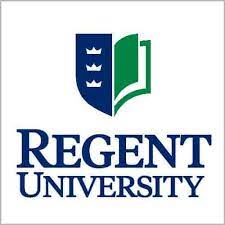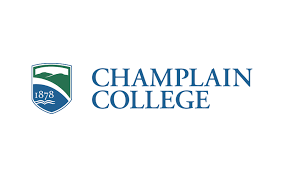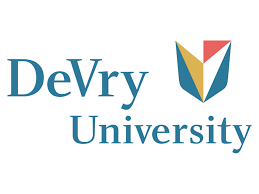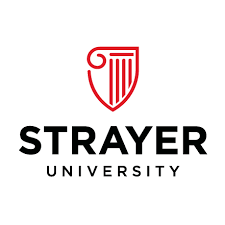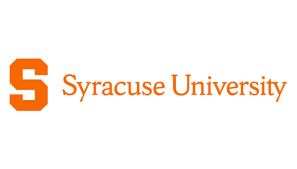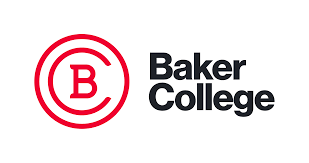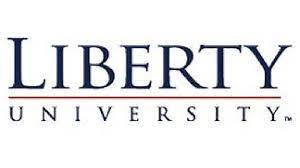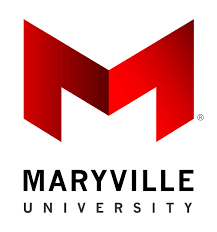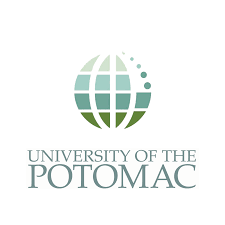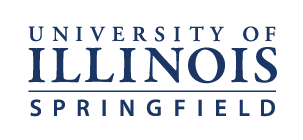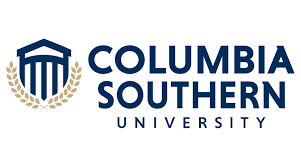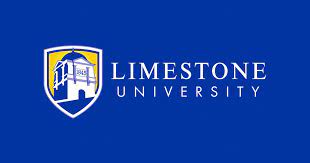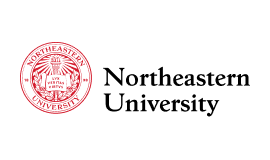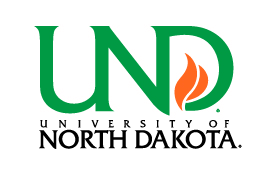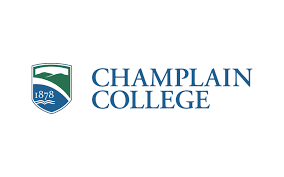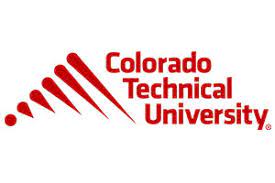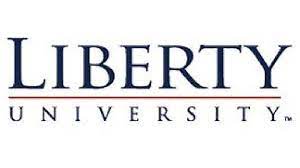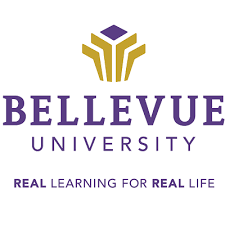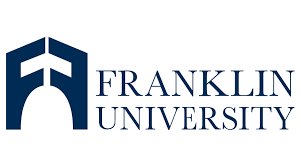Find Your Perfect School
$100,530 per year… This is the median annual wage (May 2022) for employees in a wide range of computer and information technology occupations. With a $46,310 median annual wage for all occupations, it’s more than double, and it’s among the reasons for the popularity of baccalaureate degree programs in computers and technology.
And there are also plenty of job opportunities waiting for them, too! The Bureau of Labor Statistics forecasts a higher-than-average 13% growth in these occupations (2022-2032). This translates to more than 337,500 jobs added to the existing pool, with the demand fueled by the widespread use of computers. Nearly every aspect of modern human life is touched by computers and technology, including Internet surfing, education, and agriculture.
But getting a bachelor’s degree in computers and technology has its fair share of challenges, not least of which is the rigorous curriculum. Students must possess higher thinking skills, including critical thinking and problem-solving, and learn about advanced computer concepts. Students with a knack for mathematics are more likely to succeed due to the heavy emphasis on the subject.
While each program has a unique curriculum, the common areas of study include the following:
- Advanced math courses like calculus and statistics
- Network architecture
- Database systems
- Data algorithms and structures
Like all bachelor’s degree programs, computers and technology programs also have general education and elective courses. The general education courses include English, maths, and science, while the elective courses depend on the program and specialization. Due to the comprehensive range of courses, students learn several transferable skills like effective communication and collaboration in addition to their tech-savvy skills.
Furthermore, students learn the skill sets that allow them to participate in designing the future! After all, computers and their associated technologies are used in the creation of new systems for the advancement of life.
Bachelor’s degrees in computers and technology are usually offered in Bachelor of Science (BS) form due to the greater emphasis on STEM. But there are also the occasional Bachelor of Arts (BA) and Bachelor of Professional Studies (BPS).
Online programs require the completion of at least 120 credit hours for graduation purposes, the same as on-campus and hybrid programs. The average completion time is four years for a full-time student and five years or more for part-time students. Take note that programs typically have a cap on the number of years that students can complete the requirements for graduation. The typical period is within six years after the first term of enrollment.
Many programs accept the transfer of credits for general education and core courses, sometimes as much as 75% of the total credit requirements. The transferred credits may come from an associate degree, Advanced Placement courses, and even life and work experiences. Transfer students can then earn their degree in less than four years and use it for a career change or advancement.
Admission requirements vary, but the typical programs require applicants to submit high school and college transcripts, standardized test scores, and recommendation letters. Online applications are the norm, and application fees vary in amount.
Best Bachelor’s in Computers and Technology Online Schools and Career Guide
COMPUTER ENGINEERING
With $119,560 as the median annual wage, computer hardware engineers are among the most well-paid professionals. Their formal education includes a BS in Computer Engineering degree that combines academic coursework and practical experience, even internships. The courses cover microelectronics, computer architecture, circuits, signal processing, digital design, and logic design.
The theoretical and practical coursework prepares students for careers in telecommunications, consumer electronics, and biomedicine. Job titles include systems analyst, testing engineer, gaming programmer, hardware engineer, and even IT consultant with extensive work experience.
Computer hardware engineers have these general duties:
- Design new and improve old computer hardware including the creation of its schematics
- Develop the hardware, including its circuitry
- Test the hardware, analyze the results of tests, and make the necessary adjustments
- Supervise the manufacturing process for the new hardware
- Ensure that the hardware works with the software
Higher thinking skills are a must due to the complex nature of computer hardware aside from effective communication and collaboration skills.
Regent University
Virginia Beach, Virginia
: 800-373-5504
The 126-credit hour program prepares students to conduct experiments related to computer engineering, from conceptualization to creation. Students also learn about the impact of their engineering work on the environment and society. With their skill sets, graduates become computer engineers, engineer researchers, and robotic engineers.
The coursework includes programming languages, software engineering, and database fundamentals. Students gain a wide range of abilities, including solving complex engineering problems and communicating with team members. Due to Regent being a Christian university, students are also encouraged to apply a Biblical worldview in their studies and profession.
Students may apply on a full-time (12 credit hours) or part-time (6 credit hours) basis, and the tuition per credit hour differs between $395 and $450. FAFSA and other forms of financial aid are offered to eligible students.
Unofficial transcripts and a government-issued ID alongside a completed admissions questionnaire are the initial requirements. Regent grants conditional enrollment while waiting for the official transcripts.
Florida International University
Miami, Florida
: 855-875-5920
Students must earn 128 credit hours before being granted the degree, and transfer of credits is granted to eligible students. The program provides students with the essential building blocks to succeed in the competitive engineering profession. Innovation and invention are encouraged, particularly in the practical applications of computer engineering.
Students undertake a rigorous curriculum with an emphasis on software engineering, hardware architecture, and hardware-software integration. The coursework also includes computer networking, filter design, instrumentation, image and signal processing, the bread-and-butter combos of computer engineers. Theory and practice have equal emphasis and, thus, students learn practical applications that will pave the way for solutions.
Transferable skills, including communication and critical thinking skills, are also developed. Students learn through a combination of interactive lectures, recorded videos, and virtual exams. Professors are also ready to provide real-time responses within reasonable hours, and most of them are experts in their fields.
Standardized test scores and high school transcripts are required from first-year students. Tuition is under $230 for in-state students.
Old Dominion University
Norfolk, Virginia
: 800-968-2638
BS in Computer Engineering Technology
The 120-credit hour program features a mix of synchronous and asynchronous formats for its online students. The challenging coursework prepares students for successful careers in network design and management, computer hardware and software engineering, and robotics. There are courses on data structures, programming, digital and linear electronics, and advanced circuit analysis covering theory and practice.
Students also become well-versed in hardware-software integration with each course, a skill set that can be transferred across many jobs. Leadership skills, professional ethics, and collaborative skills are also emphasized to prepare students for leadership roles in the present and future. Aside from being competent professionals, graduates can also sit for Virginia’s Fundamentals of Engineering (FE) exam, the first step toward an engineering license.
ODU has affordable tuition rates, although in-state and out-of-state tuition rates differ. Students on active military duty can apply for discounted rates, and ODU offers several financial aid options, including scholarships.
COMPUTER FORENSICS
Students enrolled in online computer forensics programs learn tracking techniques and tools in establishing the digital trails of cyberattacks and cybercrime. The digital evidence, including the source of cyberattacks, can become instrumental in criminal investigations undertaken by government agencies, corporate organizations, and legal entities. Students then have plenty of job opportunities waiting for them in the public and private sectors and salaries of more than $112,000 per year.
Job titles are varied, including computer forensic investigators, IT managers, information security analysts, and chief information security officers. Most professionals deal in white-collar crimes and the proper assessment, response, and management of cyberattacks. Cybersecurity is an overarching concern and, thus, students learn effective ways of identifying, counteracting, and preventing old and new threats.
The core courses differ among online computer forensics programs depending on whether it emphasizes data security or law enforcement. The degree may either be a full degree or a specialization of another degree, both of which are valid in employers’ eyes.
Champlain College
Burlington, Vermont
: 866-637-6292
BS Computer Forensics & Digital Investigation
The 100% online program provides students with 24/7 access to their learning materials and other coursework. Thus, it’s ideal for non-traditional students. The semester consists of two terms with seven weeks each term, and there are three semesters every year. Students complete the academic requirements for 120 credit hours for graduation eligibility.
Students may transfer up to 90 credits. The recommended time commitment is 10-17 hours per course every week to satisfy academic demands. The curriculum consists of general education courses, professional courses, and technical electives. Criminal law and procedure, networking fundamentals, and introduction to operating systems and financial information reveal its breadth and depth.
Champlain is an NSA- and DHS-recognized National Center of Academic Excellence in Cyber Defense Education and a DC3-designated National Center of Digital Forensics Academic Excellence. Both credentials point to its robust track record in being the best school for aspiring computer forensics professionals! The professors have recognized experts in their fields aside from being thought leaders whose ideas about cybersecurity set the trends.
DeVry University
New York City, New York
: 866-338-7955
BS Computer Information Systems Specialization in Computer Forensics
DeVry makes it easier for students to earn their degrees by providing above-par support services, including a complimentary laptop. Their training touches on a comprehensive array of skill sets in iOT, cybersecurity, and cloud technologies, which are essential in gathering evidence against cyberattacks. Students can then immerse themselves in iOT systems and technologies, so their formal education combines theory and hands-on experience.
Due to the complicated nature of cybersecurity, students are encouraged to develop their inductive and deductive reasoning skills. Effective communication, collaboration, and critical thinking skills are also a must in the virtual classroom, as it is in the work environment.
Full-time first-year students can earn the degree in under three years, while transfer students can accelerate their completion time through transferred credits. Both must take major courses in logic and design, information ordering, computer ethics, and digital crime procedure and evidence. The skills-focused curriculum prepares students for industry certification exams like CompTIA A+, CompTIA Cloud+, and CompTIA Network+.
Strayer University
Washington, DC.
: 877-582-0284
BS in Criminal Justice with Computer Forensics Specialization
Students in the program learn the tools of the trade as investigators involved in criminal investigations that use digital evidence. Their skill sets will include the ability to gather, evaluate and preserve digital evidence in cybercrime and cyberattack investigations. The criminal justice focus contributes to the increased employability of students in the public and private sectors.
The program consists of 40 courses, with each course lasting for 11 weeks. The format makes it easier for students to pay for the per-course fee and, thus, complete the program within the allotted time frame.
Students also get above-par support services that start from their admission into the program until their graduation day. Strayer also assures its students of 1:1 attention from experienced professors dedicated to student success.
The coursework prepares students for the demands of the real world, including cybercrime investigations and the presentation of evidence in courts. Network server administration, computer forensic technology, and psychology are in the curriculum.
COMPUTER PROGRAMMING
Computer programmers make a median annual wage of $89,190 and can even work from their homes due to the fluidity of the tasks. Their main task is writing and testing code for software and apps, which can be performed as a solo worker or in collaboration with other professionals. Software engineers and developers often work with computer programmers in the design, development, and troubleshooting of the code.
Aside from effective English communication skills, computer programmers must also be proficient in several programming languages, including Java and C++. Their job also involves updates and expansions of current programs, the creation of an integrated development environment (IDE), and using code libraries. Cybersecurity and database management may also be part of their skill sets.
Online programs offer flexible schedules but still have high academic standards for students due to the complexity of computer programming. The typical 120-credit hour curriculum consists of programming languages and Internet programming courses, and courses are done in sequence. Capstone projects and internships are common in many programs, too.
Herzing University
Menomonee Falls, Wisconsin
: 800-596-0724
Every class in the 120-credit program is delivered online, so students have the flexibility of on-demand access to the coursework. Students can finish the program in 32 months on full-time enrollment and speed up their completion time through transferred credits. Herzing allows up to 90 transferred credits or 75% of the minimum number of credits required for graduation.
Students may also earn dual credits that can be applied toward an MBA degree in the future. Their baccalaureate coursework includes profession-specific courses and transferable skills useful in numerous jobs in the programming sector. Object-oriented programming, web scripting, mobile app development, and data warehousing are a few examples of advanced courses.
Creative problem-solving and critical thinking skills are developed through months of practice in academic and laboratory settings. Students with and without programming skills quickly learn from the best professors when first admitted into the program. Java, JavaScript, SQL, Python, and C++ are among the programming languages learned here.
Syracuse University
Syracuse, New York
: 315-443-9378
The 120-credit program delivers all its classes online through weekly interactive live sessions. Students have 24/7 access to their learning materials, too, so keeping up with your academics anytime, anywhere is possible. The affordable tuition rate combined with generous financial aid packages makes it attractive to non-traditional students.
The comprehensive curriculum consists of general education, core and applied courses that result in interdisciplinary education. Students build on their professional skill sets in computer programming through the sequential plan of study and their transferable skills, including project management. While writing and testing code are at the heart of the program, its coursework allows students to think beyond academics.
Object orientated programming, database management, and programming languages are a few of the major courses. The programming languages learned here include C++, C#, JavaScript, and Windows programming. Students also learn the skills to work in a team, present their work and adopt ethical practices.
Baker College
Ossowo, Michigan
: 800-964-4299
BS in Computer Science Concentration in Computer Programming
Students earn the degree in four years or less, depending on their course load and transferred credits. This is a 120-credit hour program with 18 hours in computer programming and 70 hours in computer science. The extensive curriculum is known for its rigorous coursework that demands at least 10 hours of weekly time commitment.
Programming languages are at the heart of the program, but there’s also an emphasis on artificial intelligence, system development methods, and computer architecture. Students must complete a senior project and undergo an internship for 150 hours. The senior project involves a year-long, hands-on experience in finding solutions for real-world programming issues. The combination ensures that students have ample opportunities to apply theory in practical situations.
Industry professionals have a hand in the curriculum, and it’s being updated under the changing times. Graduates then have the competitive skill sets to apply for entry-level jobs and pursue a master’s degree.
COMPUTER SCIENCE
The beauty of a bachelor’s degree in computer science is its versatility when it comes to employment. Network engineers, software developers, database engineers, and computer scientists are among the job titles possible. Government agencies, corporations, and nonprofit organizations have a high demand for these professionals, too.
Online computer science programs emphasize computer programming and architecture, logic and computation, and algorithms. Many programs offer computer science as a standalone degree, while others offer cybersecurity, artificial intelligence, or database management concentrations. The curriculum varies between specializations, but students must be prepared for math-heavy courses, including statistics and calculus.
With at least 120 credits for completion, full-time students can earn the degree in four years. Accelerated and part-time programs are also available.
In general, computer scientists write and test software and apps and use technology to solve problems and anticipate future issues. While there are significant differences in job titles and duties, their primary focus is the development of hardware and software that people can use in their everyday lives.
University of Maryland Global Campus
Largo, Maryland
: 55-655-8682
UMGC’s program students learn about planning, creating, and optimizing hardware and software systems suitable for governmental, commercial, and industrial environments. Such is the depth and breadth of their education that employers consider them a priority! The curriculum’s design ensures that students gain a robust foundation in several programming languages and graphics and software design.
This is a 120-credit program consisting of 36 compulsory major courses, 43 electives and minor courses, and 41 general education courses. The courses include introductory, intermediate, and advanced programming, computer systems and architecture, and secure Python applications.
The average completion time for full-time students is four years, but transfer students can shorten their stay through transferred credits. The program allows up to 90 credits for transfer from an associate degree, certifications, Advanced Placement, and other means.
Students can also choose the Vertical Pathway option. You may decrease your coursework in a Master of Arts in Teaching program by completing this baccalaureate program.
University of Florida
Gainesville, Florida
: 352-392-3261
This is a combination degree program administered by the College of Liberal Arts and Sciences and the College of Engineering. As such, students enjoy a good balance between a liberal arts education and engineering-heavy training. Students are provided with the freedom to explore the principles underlying computer science, too.
The university’s Department of Computer & Information Science and Engineering serves as the coordinating body for this 120-credit hour program. The curriculum consists of 29 credits of foundational courses, 35 credits of core courses, and nine credits of electives.
Staying in the competitive program means earning a “C” grade, minimum, for all major coursework. Students must also participate in a challenging exit interview during their last semester as a graduation requirement. Due to the prestige of a UF education, graduates are known to work in many of the state’s largest corporations.
Saint Leo University
St. Leo, Florida
: 800-334-5532
Professors at Saint Leo University’s programs have a real-world, high-level experience committed to impart to their students. Graduates forge successful careers in prestigious companies like IBM and Texas Instruments and public and private organizations. Their success can be attributed to the university’s high education standards, partly based on IEEE and ACM recommendations and its forward-thinking curriculum.
Students must have at least 120 credits for graduation eligibility. The coursework includes computer systems, programming languages including C/C++ and Java, and algorithms and data structure. There’s also an emphasis on the study of the theoretical foundations underlying computer science.
Beyond the virtual classroom, students gain hands-on work experience through an internship program with local and state organizations. Students have become interns at Tech Data Corporation, Verizon, and sheriff offices, a testament to the versatility of students’ training. Membership in the Computer Gamers Club, Computing Club, and Upsilon Pi Epsilon is also encouraged.
DATABASE MANAGEMENT
Database administrators, managers, and architects are among the highest-paid professionals with a $99,890 median annual wage. Demand for them will also rise in the 2022-2032 period by 8%, as fast as average, due to the increasing demand for effective, efficient, and secure databases. Individuals with a bachelor’s degree in database management can also find employment opportunities as security analysts, programmers, and software developers.
Success as a database manager also comes with continuing education, particularly through professional certifications, but a bachelor’s degree is a great foundation. Students must possess solid critical and analytical thinking skills, communication and collaboration, and problem-solving skills to thrive.
Their formal education consists of database architecture and management courses, programming languages, and cybersecurity and cybercrime. Certain programs also require students to participate in integrative communication classes for soft skills development purposes. Students must have strong communication skills to create user guides, technical manuals, and other relevant documents.
Liberty University
Lynchburg, Virginia
: 800-424-9595
BS in Information Systems – Online Database
Liberty’s 100% online, 120-credit program takes an average of 3.5 years for full-time students to complete. Each course has an eight-week duration, and students can choose from eight start dates throughout the year. The asynchronous delivery format means students don’t have to worry about the set log-in times – there are none!
For students who have had an associate degree and professional certifications, earning the degree in two years is possible. Liberty accepts up to 75% of the degree’s total credits in transfer credits – or up to 90 credits. Nonetheless, both freshman and transfer students learn about the core principles and current practices in database management.
The degree has two primary parts – core courses in information science (IS) and specialization in database management. The coursework includes object-oriented programming, web enterprise technologies, and IS project management. Proficiency in business law, financial accounting, and data communication systems is also embedded in the curriculum.
Maryville University
St. Louis, Missouri
: 888-266-0574
BS in Management Information Systems
Maryville’s 120-credit program emphasizes business skills as it enables students to gain practical management information systems (MIS) skill sets. Students start their upper management positions early with skills related to effective project management, network security, and programming gained over four years. The best thing: There are no campus visits and residency requirements!
Students gain these skills through a robust foundation in theory and a wide array of hands-on experiences using current and emerging technologies through real-world practice. Project management is a key course in the program, so students learn relevant skills early on. Cybersecurity, programming languages, and MIS creation and management are among the major courses.
Maryville is also a 2018-2021 Apple Distinguished School, a deciding factor for many applicants. Students also enjoy above-par student support services, including faculty mentorship, aside from the prestige of studying at one of the country’s top colleges.
University of the Potomac
Washington, DC.
: 202-274-2300
BS in Data Analytics and Management
Potomac’s program trains students in collecting, aggregating, and evaluating data from different sources, followed by creating actionable forecasts and insights. Students become proficient in technical skills related to programming languages (Python, R, and SQL) and Microsoft Azure, SAS, and Tableau. But since presentation skills are also important in computer-related jobs, students develop their communication skills.
By learning about basic business management strategies, students prepare themselves for the demands of business environments. Graduates have a business perspective combined with a deep understanding of data analytics and management and an employable mix indeed.
There are two specializations offered in the program – Geospatial-Intelligence and Data Analytics and Visualization. Both share the same general education courses but have different major and specialization courses.
INFORMATION SYSTEMS SECURITY
Considered a niche field within computer information systems, information systems (IS) security involves safeguarding databases and other information systems against cyberattacks. These can include unauthorized access to the information and its alteration in any form wherever said information might be processed, stored, and in transit. The security measures may also include appropriate identification, prevention, and response to internal and external threats.
Individuals with a bachelor’s degree in IS security can choose from several career paths. These include IS managers and analysts, network and computer systems administrators, and computer network, architects. Online programs are popular because of their scheduling flexibility, curriculum quality, and affordability, and their curricula are the same as on-campus programs.
The typical online program has 120 credits, minimum, required for graduation, and it can be completed in 4-6 years depending on enrolment status. Cybersecurity and cybercrime fundamentals, digital forensics principles and practices, and ethics and professionalism are common courses.
University of Illinois Springfield
Springfield, Illinois
: 217-206-6770
BS in Information Systems Security
Students earn the degree after completion of the academic requirements of 120 semester hours. Transfer credits are accepted, but students must earn at least 30 semester hours at UIS for graduation. Of the 120 semester hours, at least 48 must be numbered 299 or upper-division credits.
Students thrive in an environment where professors are committed to student success through mentoring and other support services. These are necessary for success as a UIS student due to the rigorous coursework consisting of many IS security-related courses. These include designing, implementing, and managing secure systems and ethics, professionalism and communication, and critical thinking skills.
The Computer Science Department, which manages the baccalaureate program, is a National Center of Academic Excellence in Information Assurance Education. Admission is on a competitive basis with two semesters of experience in Java programming and at least a 2.0 undergraduate GPA, among others, required. Students can then look forward to the best formal education and hands-on training in IS security possible.
Columbia Southern University
Orange Beach, Alabama
: 251-981-3771
BS Information Systems and Cyber Security
CSU’s 120-semester program consists of 48 hours of major courses, including cyber warfare and application, cybersecurity law and policy, and critical infrastructure protection. There are 42 hours for electives and 30 hours for general education, meaning students can customize their degree to a certain extent.
Individuals who want quality education in systems security analysis as a foundation for a career or in line with a career change or advancement are welcome to apply. Students agree that it’s an excellent training ground for acquiring IS development and management skills, cybersecurity and cybercrime prevention, and digital forensics.
Financial aid, military tuition assistance, and transfer credits are ways of saving on CSU tuition. The tuition already includes textbooks, too.
Limestone University
Gaffney, South Carolina
: 864-489-7151
BS Computer Science – Computer and Information Systems Security
Online students enjoy the same curriculum and student support services as their on-campus counterparts at Limestone’s BS in Computer Science program. The main difference is that online students access their learning materials through the Canvas learning system, which allows 24/7 access for students. The learning materials include assignments, exams, and video lectures, which are asynchronous in design.
Professors and staff members are available for consultations during office hours, too. Each eighth-week term consists of two courses only. Students with other personal and professional responsibilities can then enjoy a good work-life balance. The 120-credit hour program has courses like microcomputer applications, introduction to computer science, and programming.
Applicants should obtain a high school diploma or GED equivalent, official transcripts, and standardized test results to be considered for admission.
INFORMATION TECHNOLOGY
A bachelor’s degree in Information technology (IT) is an excellent ticket for entry-level jobs in diverse fields, from healthcare, finance, and manufacturing to software and game development. Indeed, it’s among the most versatile degrees in the computer and technology field! This is due to online programs’ comprehensive curriculum that covers general education, core courses, and specialization coursework.
Regardless of the curriculum, every IT baccalaureate program is characterized by academic rigor, hands-on experiences, and even internships. Web design, database programming, and database management are the common major courses. Project management, organizational behavior, and business administration courses are also part of the curriculum. The combination highlights the business-centric approach toward IT that many organizations adopt.
Many online programs offer data analytics, information security, smart technology, IT management, and web design and application. Every concentration has program-specific courses that prepare students for the unique demands of their profession.
Northeastern University
Boston, Massachusetts
: 877-668-7727
Northeastern has a challenge-based learning philosophy that combines academic coursework and hands-on practice. Students benefit from the updated courses that reflect the current market demand for IT workers. Graduates are then well-prepared to take on the challenges associated with an IT career.
There are several optional concentrations offered:
- Applications Development (Mobile programming, web programming, and databases)
- Cybersecurity (Software vulnerabilities, computer forensics, and network security)
Students gain business-related skills, such as organizational leadership, business communications, and project management, as part of their training. Their skills are tested in real-world situations, too, particularly during professional practice.
Professional certifications, such as PMP and network certifications, can be translated into credits. Work experiences are also eligible for credits.
Southern New Hampshire University
Manchester, New Hampshire
: 800-668-1249
BS in Information Technologies
SNHU promises that students in its IT program will gain technical skills vital to their success as IRT professionals. Students become skilled in analyzing complex computing problems and their solutions, designing and implementing IT systems, and collaborating with a team.
There are five concentrations to choose from:
- Cyber Security
- Business Management for IT
- Data Analytics
- Software Development
- Project Management for IT
All concentrations require completion of 120 credit hours, including general education, core, and major courses. Students build on their technical and professional skills with each course. Academic advisors recommend that courses be taken in sequential order since each course builds on the skills acquired in prior courses. Students are also advised to utilize SNHU’s technology resources, including its cloud-based virtual learning systems.
Earning credits for IT credentials, including certifications and work experiences, is also easy. CompTIA, Cisco and Oracle are common certifications accepted. Students can transfer 90 credits in this manner. Ask about the Pathways to Math Success assessments, too, since it can result in up to 12 credits in math.
Purdue University Global
West Lafayette, Indiana
: 844-787-3834
Students only need to put at least 15 hours every week into their online studies to thrive in Purdue’s program. The 10-week course length also makes earning the required 180 credits on a working student’s schedule easier. All classes are also delivered online for convenience.
But students must not be complacent either because assessments are made at the end of each term. Every student is evaluated based on the mastery of knowledge and skills expected for the courses. Technical skills have equal weight as professional skills like creativity, critical thinking, and communication skills.
Students choose from these concentrations:
- Game development
- Information security and assurance
- IT management
- Network administration
- Programming and software development
- Supply chain management
Graduates may also sit for industry certifications. Applicants with current certifications may also request credit transfers. Students may also be on a fast-track path toward a master’s degree in cybersecurity management or information technology.
INTERNET SECURITY
Cybersecurity professionals earn $112,000 in median annual salary, among the highest in computers and technology. Such is the great demand for their services that there’s an estimated 500,000 shortfall! The job outlook is also much faster than average at 32% (2022-2032), meaning individuals pursuing a bachelor’s degree in Internet security will find plenty of jobs.
Students in online Internet security programs learn the tools and techniques to detect, prevent, and mitigate cyber threats and attacks. The extensive coursework, which includes courses in cyberlaw, cybersecurity, and cyberethics, is as challenging as 100% commitment is a must. Students must also develop their higher thinking skills alongside cybersecurity-related technical skills, a must-have combo in future jobs. These include forensic scientists, information security analysts, security software developers, and cybersecurity administrators.
Life-long learning is encouraged due to the fast obsolescence of cybersecurity systems and software. Skills updating and continuing education are facts of life for Internet security specialists.
Norwich University
Northfield, Vermont
: 866-684-7237
Norwich is a Center of Academic Excellence in Cyber Defense Education, and, thus, it’s among the best schools for aspiring cybersecurity specialists. Students get online instruction and benefit from a relevant skills-based curriculum designed with inputs from recognized cybersecurity experts. The program itself is geared toward working adults through its combination of project-based courses, electives, and professional skills development.
The program offers two concentrations:
- Computer Forensics and Vulnerability Management
- Information Warfare and Security Management
Students can tailor their degree through elective courses in each concentration. With several start dates throughout the academic year, it’s among the most flexible programs, too.
The minimum required credits earned for graduation is 120 credits, but students must show at least 30 earned credits before admission. Up to 90 credits can be transferred, meaning program completion can be less than 18 months. Students must submit a capstone project as a culminating requirement.
University of North Dakota
Grand Forks, North Dakota
: 701-777-3000
No campus visits and 100% online instruction appeal to non-traditional students enrolled at UND’s program, including working adults. The affordable tuition, not to mention that in-state and out-of-state tuition are the same, also draws aspiring cybersecurity professionals. Online and on-campus curricula are also the same, so online students get quality education and training in readiness for the workplace.
Students and professors also engage in real-time interactions, including discussions and feedback. Industry experts are also invited to give virtual lectures, invaluable information, and inspiration for students.
Academic advisors provide guidance and assistance to students as part of UND’s exceptional student support services. Other services include free online tutoring, self-help study resources, and academic coaching. Students also have full access to online resources, including the Chester Fritz Library and Writing Center.
Western Governors University
Millcreek, Utah
: 866-225-5948
BS in Cybersecurity and Information Assurance
WGU’s program meets the NSA and DHS standards for baccalaureate programs in cybersecurity and is created with experts’ inputs. Graduates are then assured that their formal education will be attractive to employers in the public and private sectors! Their employability is also due to embedded training for ISC² and CompTIA industry certifications.
Students transfer an average of 37 credits to the program, and these credits come from an associate degree, certifications, and previous college credits. The majority of students earn the degree in 29 months with transferred credits. Students must request a transcript review for this purpose.
The key subjects highlight the comprehensive skill sets that students acquire during their WGU stay. Information security, scripting and programming, and web development are in the coursework.
MOBILE DEVELOPMENT
Baccalaureate programs in mobile development enable students to compete for and advance in the competitive field of mobile apps. There are also generous compensation packages with median annual salaries of $124,200 (May 2022). The opportunities for full-time work also abound, with forecasted job growth at 25% (2022-2032).
With great job opportunities come demanding training, too. Students in mobile development programs must develop their technical and transferable skills in every course. The typical coursework includes Apple programming language, game theory, and information security fundamentals, updated according to the changing technologies. Legal and ethical issues affecting app development and IT project management are also part of the curriculum.
Graduates usually become mobile software developers, but there are other career paths where the degree proves useful. Computer information systems managers and web developers are popular careers.
Full Sail University
Winter Park, Florida
: 800-226-7625
Full Sail’s reputation as among the best schools for programs in video game design is reason enough for aspiring mobile app developers to consider it! Students receive comprehensive training in mobile app development from idea creation to product launch, and it has sequential coursework.
The 29-month program consists of a specific course every month so students can optimize their learning (i.e., less pressure compared to multiple classes). The courses include programming languages compatible with Apple and Android devices and market research methods, including preparing a complete software plan. The 29th month involves a project and portfolio requirement alongside a career readiness course.
Admission is a competitive process with applicants required to pass a math assessment before entry. Students participate in Project LaunchBox, where learning materials are stored and accessed 24/7. Inclusions are an Apple MacBook Pro, Microsoft Office 365, and Google Pixel 4A.
The $25,000 Momentum Scholarship and financial aid are open for students.
Fort Hays State University
Hays, Kansas
: 785-628-3478
FHSU prides itself on being a forward-thinking institution with world-ready graduates. It delivers with its two bachelor’s degree programs with a web and mobile application development concentration! Students choose between the science-centric BS program and the arts-heavy BA program.
Both programs, however, equip students with competitive skill sets in mobile app design and development, including animation and video skills. Workflow, e-commerce, and database development are also part of the coursework, so students get world-ready training in under four years. Students are also prepared to succeed in the certification exams for Oracle Certified Associate and Certified Web Designer Apprentice.
The BS and BA programs have 120 credit hours in their respective curriculum. But the number of credit hours for general education, cross concentration, and electives vary. For the BA program, it’s 65 hours for general education, but it’s only 55 for the BS program.
Champlain College
Burlington, Vermont
: 866-637-6292
The 100% online format means students have 24/7 access to their learning materials, so Champlain’s program makes it the perfect fit for working adults. Every academic year consists of three semesters. Every semester is divided into two terms, with each term consisting of seven weeks.
Students must earn 120 credits to earn the degree. The coursework is divided into professional courses (60 credits), general education courses (30), and general (5) and technical electives (12), among others. The program enables students to appreciate the human side of software development through courses in human thought and behavior, historical perspectives, and social institutions.
Up to 90 credits can be transferred. Students are advised to commit at least 10 hours every week to their studies, although the actual hours will vary. During their studies, their mastery of programming languages and technical platforms will increase exponentially.
NETWORK ADMINISTRATION
Network administrators earned $90,520 in median annual wage as of May 2022, and it’s sufficient reason to pursue a bachelor’s degree in network administration. Students become proficient in the fundamentals of networks, including their underlying principles and current practices. Their coursework demands above-average math skills as well critical and analytical thinking, problem-solving, and communication skills.
The installation and administration of network systems are the ultimate skillsets students aim for in online programs. Knowledge about computer issues, including diagnostics and repairs, is also a must. Students prepare for the typical responsibilities of network administrators, including optimization of network performance and collaborations with other computer professionals.
Many programs also provide students with the eligibility to take IT certification exams administered by the CompTIA, Cisco, and Microsoft. These certifications are valuable in job competitiveness, although these are optional.
Aside from network administration, degree holders may also become cybersecurity specialists, systems architects, and web developers. The technical and transferable skills are versatile enough for a wide range of jobs.
Colorado Technical University
Colorado Springs, Colorado
: 855-230-0555
BS in Information Technology – Network Management
CTU’s program is both immersed in the present and anticipating the future. Students learn about the current principles and practices of network management while also striving to be trendsetters. The coursework emphasizes mastery of the IT basics, including programming, connectivity, and database systems, while also establishing a robust foundation for leadership roles.
Students complete 184 credits to earn the degree. The major coursework includes advanced subjects like network infrastructure design, disaster recovery, and advanced database systems. The sequence of courses ensures that students have a strong foundation in the fundamentals before moving on to the advanced concepts.
CTU’s Fast Track system allows students to earn college credit for their existing knowledge via a series of tests. The average completion time is four years, but students who took advantage of the Fast Track system can reduce it.
Point University
West Point, Georgia
: 844-671-5839
BS Information Technology Concentration in Network Administration
Point University students of this degree program can obtain a bachelor’s degree and prepare for passing seven professional certification exams. These exams include CompTIA Security+, CompTIA Linux, and MCSA Administering Windows Server. Professional certifications may be optional, but employers and clients see these as proof of competency.
The rigorous coursework equips students with above-average skills sets in network administration, such as managing web servers and writing scripts. Mastery of CSS and HTML, among other programming languages, is an organic aspect of online training. Students also learn to identify, prevent and mitigate the effects of security vulnerabilities.
This is a 100% asynchronous program, so students can choose their course load and decide their pace. The 120 credits needed to earn the degree can be completed in four years of full-time study. But transferred credits up to 90 credits can shorten the duration by as much as two years. Small class sizes and a faith-based quality education draw in students from around the country.
NETWORK SECURITY
While there are overlaps between cybersecurity and network security, there are also significant differences. On the one hand, cybersecurity involves the protection of interconnected systems and networks from external digital attacks. On the other hand, network security refers to protecting directories, files, and data contained in a network of computers from unauthorized access, hacking, and misuse.
Despite these differences, both fields involve cybersecurity and computer science. Many bachelor’s degree programs even combine the two fields, such as cyber and network security, to reflect the overlap. In these programs, students learn the detection, prevention, and mitigation of digital crime through a wide range of technologies.
The coursework for standalone network security programs includes hardware and software reverse engineering, network and application penetration testing, and layered security. Incident response and disaster recovery techniques are also part of the coursework.
University of Maryland Global Campus
Largo, Maryland
: 55-655-8682
BS in Computer Networks and Cybersecurity
UMGC’s program requires its students to earn 120 credits for graduation, but as many as 90 credits can be transferred from college credits previously earned (e.g., associate degree). Abiding by the National Center of Academic Excellence in Cyber Defense Education standards, it’s in the best position to shape the next generation of network security specialists.
Students take part in cybersecurity and network security competitions with flying colors, too. The hands-on experience compliments the rigorous coursework that emphasizes technical and transferable skills development. The curriculum also includes general education courses that serve as the strong foundation for a well-rounded education.
Graduates are well-prepared for the challenges of network security-related jobs. Their abilities in the design, implementation, and administration of networks according to organizational goals are above-par.
Liberty University
Lynchburg, Virginia
: 800-424-9595
BS in Information Technology – Data Networking and Security
Liberty’s 100% online programs are known for their accreditation and recognition from the NSA and DHS. This program is a quintessential example of its academic excellence, convenience, and affordability. Students earn the degree without a residency requirement and benefit from the convenience of 8-week courses.
Freshmen students are welcome, as are transfer students who can request credit transfers up to 75% of the 120-credit hours required for graduation. Applicants must submit their official college transcripts, admission application, and other documentation for consideration. The minimum GPA is 2.0 to be considered for admission in good standing.
The coursework covers topics discussed in the Official (ISC) 2 SSCP Certified Body of Knowledge and the System Security Certified Practitioner certification’s seven domains. Students deal with the rigorous coursework that will prepare them for certification exams and high-pressure, high-reward jobs.
Herzing University
Menomonee Falls, Wisconsin
: 800-596-0724
Students can earn the degree in 32 months or less with transferred credits; the program allows up to 90 credits for transfer. The 120 credits include data collection, organization and delivery; networking infrastructure and security; and cybersecurity. Students become well-versed in the techniques and tools related to IT solutions for business environments, too.
While all courses are online, the internship is conducted in a physical environment. Instead of an internship, a research project is required if it isn’t available in your state. The research project may cover cloud computing, computer architecture, or programming logic and languages, among other possible topics.
Students may also earn dual credits that can be used for an MBA. Up to 12 credits in the undergraduate degree can be applied to an MBA degree.
SOFTWARE ENGINEERING
Individuals with a degree in software engineering have several career paths to choose from, so it’s among the degrees with high returns on investment. Career options include software engineers and developers, mobile and web developers, and computer systems analysts. Career advancement, such as for computer and information systems management positions, is possible with work experience and continuing education.
Emphasis must be made that software engineers are involved in the entire life cycle of software while software developers are only involved in writing and testing code. Software engineers are responsible for creating networking applications, web and mobile applications, and operating systems, too.
Their education combines a solid foundation in general education with a strong emphasis on math and science. Courses in technology fundamentals become more advanced as the curriculum progresses. The typical ones include systems programming, software project management, and software architecture.
Concentrations and minors may also be offered so students can customize their degrees to a certain extent. Web design, information technology, and software design are a few examples.
Arizona State University
Phoenix, Arizona
: 866-277-6589
The online program consists of 41 classes that translate into 120 credit hours. The classes have varying durations from 7.5 weeks to 15 weeks, but they require students to apply higher thinking skills. The curriculum emphasizes hands-on experience through collaborative projects in software engineering, including modeling and coding.
Foundational knowledge is first established during the first few semesters with physics, advanced math and engineering courses, and programming. Electives customize the degree according to your preference, and the choices include game architecture, embedded systems, and mobile and web applications. Courses in software enterprise are present throughout the curriculum, but their difficulty level increases with each semester.
Students must complete a capstone project in the last two semesters of their studies. The capstone project is a showcase of each student’s mastery of software engineering concepts.
Skills that students must master are related to database management, programming, management of computers and operating systems, and physics and mechanics. Software engineers must also be masters at calculus.
Penn State World Campus
University Park, Pennsylvania
: 800-252-3592
Penn State’s program encourages in-depth study of software engineering through a strong academic foundation and hands-on experience. Both aspects cover computing, engineering and software construction, and leadership skills, all of which are vital for workplace success.
Students are also encouraged to develop their transferable skills, including communication and collaboration, alongside their technical skills. Software for embedded systems and mobile and web applications are among the projects students take on during their studies.
This is an accredited program by ABET’s Engineering Commission and administered jointly with Behrend’s School of Engineering. The engineering-heavy curriculum includes courses in statistics and probability, discrete math, and computer sciences. Seniors must undergo a series of industry-sponsored projects as their capstone requirement.
Southern New Hampshire University
Manchester, New Hampshire
: 800-668-1249
BS in Computer Science – Software Engineering Concentration
SNHU’s program allows students to transfer up to 90 credits or 75% of the required 120 credits to earn the degree. Freshman and transfer students learn from experts in software engineering regardless of their enrollment status. The general courses establish the foundation necessary for understanding the advanced concepts in the core and major courses.
The notable contributions of software engineers to society are also highlighted, such as mobile games, online payment systems, and consumer apps. Aspiring software engineers also learn the tools and technologies behind these notable inventions and innovations and, thus, lead the charge for next-gen apps and systems.
WEB DEVELOPMENT
Web developers can earn as much as $146,430 every year, and their profession is in high demand due to the prevalence of the Internet. Their work involves the design, maintenance, and management of websites for their employers and clients. The specific tasks include creating and testing apps, menus, interfaces, writing and testing code, and monitoring site performance.
Earning a bachelor’s degree in web development is an excellent step toward becoming a well-paid web developer, although other career options are available. Other careers include computer systems analysts, computer programmers, and information systems managers. While licensure isn’t required – and there are none so far – professional certifications and continuing education are crucial for career advancement.
The typical courses cover design theory, systems design, and information technology in business settings. Proficiency in several programming languages, such as Java, HTML, and CSS, is a primary learning outcome.
Arizona State University
Phoenix, Arizona
: 866-277-6589
BAS in Internet & Web Development
The primary focus of ASU’s program is on website design and development, including usability, user experience, and cross-platform applications. Students not only learn about current principles and practices in web development but also about emerging technologies. The result is a world-class education with a foundation in innovation and invention.
All classes are delivered via an online learning platform, but students must work with their academic advisors for class scheduling and other purposes. This degree completion program accepts students with an associate of applied science degree in fine arts, graphic arts, or graphic design, or a combination of technical training and related work experience.
Students must earn 60 credits within the ASU program. The credit hours are divided into general studies, core and concentration courses. Examples include planning and storyboards, website and e-commerce strategies, and computer systems technology.
Bellevue University
Bellevue, Nebraska
: 800-756-7920
The 127-credit program accepts previously earned credits from an associate degree and military training and experience. This is an accelerated cohort program intended for working professionals and busy students. Students take their classes as a cohort at the beginning of the term, resulting in collaborative learning experiences.
The coursework balances front-end web design and back-end database management resulting in a well-rounded education in web development. Students work on projects independently and as part of a team, a combination that develops their soft skills. Technical skills are the primary goal, with students mastering programming languages like JavaScript and proficiency in agile methodologies, container technologies, and API development.
Franklin University
Columbus, Ohio
: 877-341-6300
The 100% online program features classes with varying durations of six to 12 weeks. Students earn 124 credit hours to finish the program, but 76% of the credit requirements can be transferred credits. Adult learners find that Franklin’s exceptional student support services, flexible course schedules, and affordable tuition mesh with their life goals.
Hands-on experience combined with a strong theoretical framework ensures that students gain proficiency in front-end and back-end development. Since businesses often employ web developers, students also learn business applications for their specialized skills. Their training even includes the fundamentals of online retailing, marketing, and supply chain management.
Frequently Asked Questions
Why should I earn a Bachelor’s in Computers and Technology?
A Bachelor’s in Computers and Technology will give you the technical skills and knowledge you need to start your career in the ever-evolving technology industry. You’ll learn about coding, software engineering, data analytics, and other computer-related topics.
By gaining a solid foundation in computers and technology, you’ll be well-prepared to pursue a career in this field, which is full of opportunities. Plus, you may have the chance to specialize in certain areas, such as artificial intelligence, cybersecurity, or mobile development. Earning this degree can open the door to many careers and help you stay ahead of the competition in this growing field.
What are the prerequisites to a Bachelor of Computers and Technology program?
The prerequisites for a Bachelor’s in Computers and Technology vary depending on the institution, but you should generally be prepared to take courses in advanced mathematics, such as calculus and linear algebra, as well as courses in programming languages.
In addition, some programs may require courses in physics, chemistry, and other sciences. Check with the institution you plan to apply to for specific requirements.
What are the most lucrative career choices with a Bachelor’s in Computer and Technology?
- Software Engineer: Software engineers develop the applications and programs that run on computers and other digital devices. They work with code and software to ensure that applications run smoothly and efficiently.
- Database Administrator: Database administrators are responsible for managing and maintaining large amounts of data. They are in charge of creating, monitoring and troubleshooting databases.
- Network Administrator: Network administrators are responsible for the smooth running of computer networks. They install, configure, and troubleshoot networks and ensure that they are secure and reliable.
- Systems Analyst: Systems analysts evaluate the needs of an organization and develop solutions to improve their operations. They create technical designs, test and implement new systems, and provide support to users.
- Cybersecurity Specialist: Cybersecurity specialists are responsible for designing and implementing security measures to protect computer systems from malicious attacks. They monitor networks and systems for suspicious activity and respond to security threats.
What curriculum is learned in a Bachelor’s in Computers and Technology program?
The curriculum of a Bachelor’s in Computers and Technology typically includes courses in programming languages, computer architecture, operating systems, networks, database systems, software engineering, and web development. Other topics, such as artificial intelligence, cybersecurity, and mobile development, may also be included.
Depending on the institution, students may also have the opportunity to specialize in a particular area of computers and technology.
Is the Bachelor of Computers and Technology degree program challenging?
Yes, the Bachelor’s in Computers and Technology program can be challenging. It covers a wide range of topics, and students must become proficient in programming languages, software engineering, and other computer-related topics. Students must also have a good understanding of mathematics, including calculus and linear algebra. However, with dedication and hard work, it is possible to succeed in this program.


